43 understanding fat on nutrition labels
Understanding Food Nutrition Labels | Sanford Fit Nutritional Information When looking at fat, carbohydrates, sodium, added sugar, and vitamins, the percent Daily Value (%DV) is a good guide. The percent Daily Value (%DV) will show how much of a nutrient is in a serving of food and contributes to a total daily diet. A general guide: 5% DV or less of a nutrient per serving is considered low. Understanding Food Labels | The Nutrition Source | Harvard T.H. All FOP labels in the U.S. are voluntary, which allows food manufacturers to highlight or hide the nutrition information they choose to help promote or preserve sales. If warning labels became mandatory, as public health advocates propose, the pressure on manufacturers would increase to change certain products to improve their nutritional quality.
Food label: ingredient list - Canada.ca Understanding food labels. Nutrition facts tables; Serving size; Food label: ingredient list; Nutrition claims; Nutrient content claims: what they mean; Percent daily value; About food labels; Calories; Health claims: what they mean; Understanding food labels - Interactive tools; Nutrition Labelling Online Course
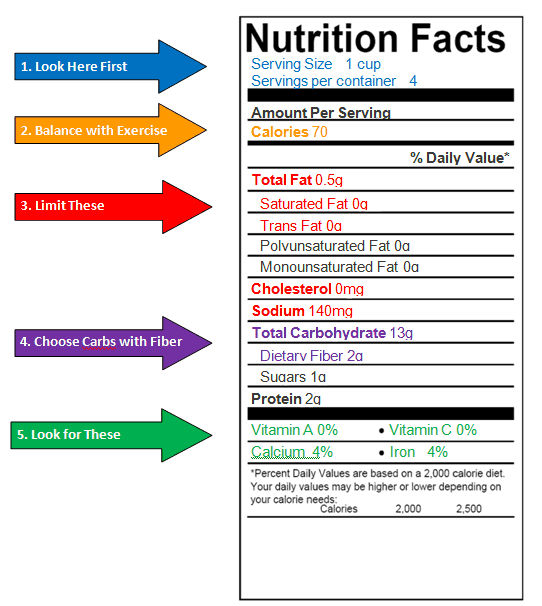
Understanding fat on nutrition labels
Learn How the Nutrition Facts Label Can Help You Improve Your Health Calories & Fat Larger, darker letters make calories the easiest item to see. When it comes to health outcomes, the type of fat you eat matters more than the overall amount of fat. For this reason, the label shows percentages of calories from unhealthy saturated and trans fats rather than the percentage of calories from all fat. Added Sugars Get the Facts! Steps to Reading and Understanding Nutrition Facts Labels Steps to Reading and Understanding Nutrition Facts Labels (FN1404, Reviewed Feb. 2022) File. Publication File: FN1404. ... Eating too much saturated fat and/or trans fat, for example, may increase your risk of heart disease. Carbohydrates. Check the amounts of dietary fiber, vitamin D, calcium, iron and potassium. Fat Content on Food Labels - Reading Between the Lines The Mayo Foundation continued, "Still, you may be able to tell if a product contains trans fat, even if it's not directly listed on the food label. Look for the words ' hydrogenated ' or 'partially hydrogenated' in the list of ingredients. These terms indicate that the product contains trans fat.
Understanding fat on nutrition labels. Food Labels: Fat & Cholesterol | Home & Garden Information Center The Nutrition Facts label shows you how much fat is in a product, even if the fat is hidden as an ingredient. The serving size and the nutrients listed on this label are consistent, which makes it easy to compare similar products without any calculations. % Daily Values (% DVs) are listed in a column on the "Nutrition Facts" label. Understanding the Nutrition Facts Label - Know Diabetes by Heart Fats Although fat can also contribute to changes in your blood sugar, they have less influence than carbs. However, it is important to reduce amount of saturated and trans fats as a part of a balanced diet. Replacing foods that are high in saturated fat with healthier options can lower blood cholesterol levels and improve lipid profiles. Sodium How to understand food labels | Eat For Health Sometimes labels will include nutrition content claims like 'low fat', 'reduced salt' or 'high fibre'. These claims can only be used if the food meets certain criteria. For example, with a 'good source of calcium' claim, the food must contain more than a set amount of calcium. While nutrition content claims can generally guide ... Reading Food Labels | ADA - American Diabetes Association Understanding Food Labels It's time to decode those food claims. Trying to figure out nutritional information on labels and packaging isn't easy. The good news is that we can help. Untangle packaging claims. If you get tripped up on food content claims, you're not alone. Fat free vs. low fat vs. reduced fat. Low cholesterol vs. reduced cholesterol.
Understanding Ingredients on Food Labels | American Heart … 06.03.2017 · Food labels are an important source of information about calories and the nutritional value of the foods you eat, a crucial tool in building a heart-healthy diet. Food labels are an important source of information about calories and the nutritional value of the. Skip to main content . Alert Community Emergency Resources. Find Resources ×. Heart Attack and Stroke … Reading and understanding the Nutrition Facts Label for health It is important to direct your attention to the top nutrient section that includes fat, saturated fat, trans fat, cholesterol, sodium and added sugars. These nutrients should be limited. Aim for eating products that have 0 percent trans fat and less than 5 percent saturated fats. Generally 5 percent or less is low and 20 percent or more is high. Understanding and Using the Nutrition Facts Label fat-free or 1% low-fat dairy products, eggs, lean meats packaged foods, snacks, and condiments. Limit baked and poultry, seafood, soy products, nuts, and seeds. Looking at labels - British Nutrition Foundation The table below shows how high, medium and low levels of fat, saturates, total sugars and salt in foods are classified for front of pack labels (there are different levels for drinks). These levels have been decided by the UK government. The 'per portion' in red is used where portions are 250g or more. What are reference intakes?
Understanding Nutrition Facts on Food Labels - WebMD Serving Size: An Important Part of Food Labels. At the top of the Nutrition Facts section, you'll see the serving size (such as 1/2 cup, five crackers, or 10 chips) and servings per container (such as two, four, six). The food label then lists the number of calories, grams of fat, grams of saturated and trans fat, etc., per serving. Understanding Food Nutrition Labels | American Stroke Association Remember that the information shown in the label is based on a diet of 2,000 calories a day. You may need less or more than 2,000 calories depending upon your age, gender, activity level, and whether you're trying to lose, gain or maintain your weight. When the Nutrition Facts label says a food contains "0 g" of trans fat, but includes ... Understanding Food Nutrition Labels | Go Red for Women 5 - Understand % Daily Value. The % Daily Value (DV) tells you the percentage of each nutrient in a single serving, in terms of the daily recommended amount. If you want to consume less of a nutrient (such as saturated fat or sodium), choose foods with a lower % DV (5 percent or less). If you want to consume more of a nutrient (such as fiber ... The Basics of the Nutrition Facts Label - Academy of Nutrition and ... Mar 04, 2022 · Low is 5% or less. Aim low in saturated fat, trans fat, cholesterol and sodium. High is 20% or more. Aim high in vitamins, minerals and dietary fiber. Step 4: Check Out the Nutrition Terms. Low calorie: 40 calories or less per serving. Low cholesterol: 20 milligrams or less and 2 grams or less of saturated fat per serving.
A Complete Guide to Reading and Understanding Nutrition & Ingredient Labels Learn how to properly read and understand nutrition and ingredient labels with this short, but complete guide. ... A Complete Guide to Reading and Understanding Nutrition & Ingredient Labels Jul 22, 2021 09:03:52AM ... and ignore the health claims on the front. Health claims such as "diet," "natural," or "low-fat," may still be ...
Understanding Food Nutrition Labels | EmPOWERED To Serve 5 - Understand % Daily Value. The % Daily Value (DV) tells you the percentage of each nutrient in a single serving, in terms of the daily recommended amount. If you want to consume less of a nutrient (such as saturated fat or sodium), choose foods with a lower % DV (5 percent or less). If you want to consume more of a nutrient (such as fiber ...
Understanding Food Labels - Nutrition: Science and Everyday Application ... The value printed on the Nutrition Facts panel is the percent DV, which tells you how much one serving of the food contributes towards meeting the daily requirement for that nutrient. The FDA uses the following definitions for interpreting the %DV on food labels:4. 5%DV or less means the food is low in a nutrient.
Interpreting Total Fat and Types of Fat on Food Labels - Nina Cherie ... Now, at the end of the day, since all high-fat foods tend to drive up calorie counts, it's typically recommended that you limit your intake of total fat to 25-35% of your daily calories. Of this amount, saturated fats and trans fats should comprise less than 7-10% and no more than 1%, respectively.
Understanding Nutrition Labels - Facty Health Know Your Fats Not all fats are the same. Unsaturated fat is essential for the normal functioning of the body, but saturated fats can negatively impact health and should be limited. A nutritional label lists saturated fat separately, so this is the value to pay attention to. You'll also see a line for cholesterol.
How to understand food nutrition labels | by Alpha Medical Team | Alpha ... The FDA recommends limiting saturated fat, sodium, and added sugars. On the other hand, it's good to get foods that are high in fiber, vitamin D, calcium, iron, and potassium, as these are some...
Understanding and Using the Nutrition Facts Label saturated fat, added sugars, and/or sodium (such as cakes, chips, cookies, and crackers). Dairy Substitute fat-free (skim) or low-fat (1%) dairy products (such as cheese, milk, and yogurt), or fortiied soy beverages for regular/full-fat (whole) dairy products. Limit dairy desserts, especially those high in calories, saturated fat, and added sugars
Understanding Food Nutrition Labels | American Heart Association When the Nutrition Facts label says a food contains "0 g" of trans fat, but includes "partially hydrogenated oil" in the ingredient list, it means the food contains some trans fat, but less than 0.5 grams per serving. So, if you eat more than one serving, you could end up eating too much trans fat.
Understanding Nutritional Labels | Beaumont | Beaumont Health Here are the parts of most food labels: Calories (total calories and calories from fat) - This part of the label tells you how many calories each serving has and how many of those calories come from fat. Total Fat - Total fat is the number of fat grams per serving. There are different types of fat. Some are good for you and some aren't.
How to Read Food Labels Without Being Tricked - Healthline 19.08.2020 · Zero trans fat. This phrase means “less than 0.5 grams of trans fat per serving.” Thus, if serving sizes are misleadingly small, the product may still contain trans fat ( 5 ).
Food Labels | CDC - Centers for Disease Control and Prevention 20.09.2022 · Food Labels. Español (Spanish) Related Pages. Understanding the Nutrition Facts label on food items can help you make healthier choices. The label breaks down the amount of calories, carbs, fat, fiber, protein, and vitamins per serving of the food, making it easier to compare the nutrition of similar products. Be sure to look at different brands of the same …
How to Understand and Use the Nutrition Facts Label | FDA Nutrients to get less of: Saturated Fat, Sodium, and Added Sugars. Saturated fat, sodium, and added sugars are nutrients listed on the label that may be associated with adverse health effects - and...
Nutrition Education - Action for Healthy Kids Social Awareness: Nutrition education serves as an opportunity to teach children about food and the relation to culture and family heritage. Discussing culinary variances across cultures helps expose children to different foods and traditional practices, increasing their understanding and appreciation for diversity.
How to Read Everything on the Nutrition Facts Label - Food Network If you're eating 1600 calories, that equals about 17 grams of saturated fat per day. If you want to go with the American Heart Association's recommendations, that number will be 8.8 grams for the...
Understanding Nutrition Fact Labels | Penn Highlands Healthcare The nutrients you want more of include: dietary fiber, vitamin D, calcium, iron, and potassium. Unlike saturated fat, sodium, and sugar, Americans generally do not consume enough of these nutrients. Fiber can decrease constipation, lower blood glucose levels and cholesterol levels, while also reducing your caloric intake.
Fat Content on Food Labels - Reading Between the Lines The Mayo Foundation continued, "Still, you may be able to tell if a product contains trans fat, even if it's not directly listed on the food label. Look for the words ' hydrogenated ' or 'partially hydrogenated' in the list of ingredients. These terms indicate that the product contains trans fat.
Get the Facts! Steps to Reading and Understanding Nutrition Facts Labels Steps to Reading and Understanding Nutrition Facts Labels (FN1404, Reviewed Feb. 2022) File. Publication File: FN1404. ... Eating too much saturated fat and/or trans fat, for example, may increase your risk of heart disease. Carbohydrates. Check the amounts of dietary fiber, vitamin D, calcium, iron and potassium.
Learn How the Nutrition Facts Label Can Help You Improve Your Health Calories & Fat Larger, darker letters make calories the easiest item to see. When it comes to health outcomes, the type of fat you eat matters more than the overall amount of fat. For this reason, the label shows percentages of calories from unhealthy saturated and trans fats rather than the percentage of calories from all fat. Added Sugars

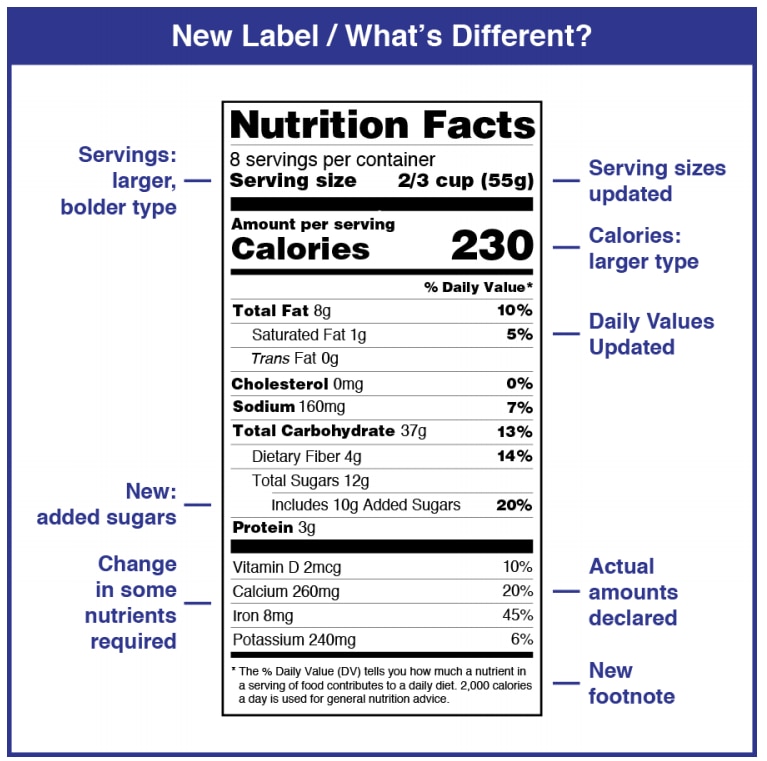




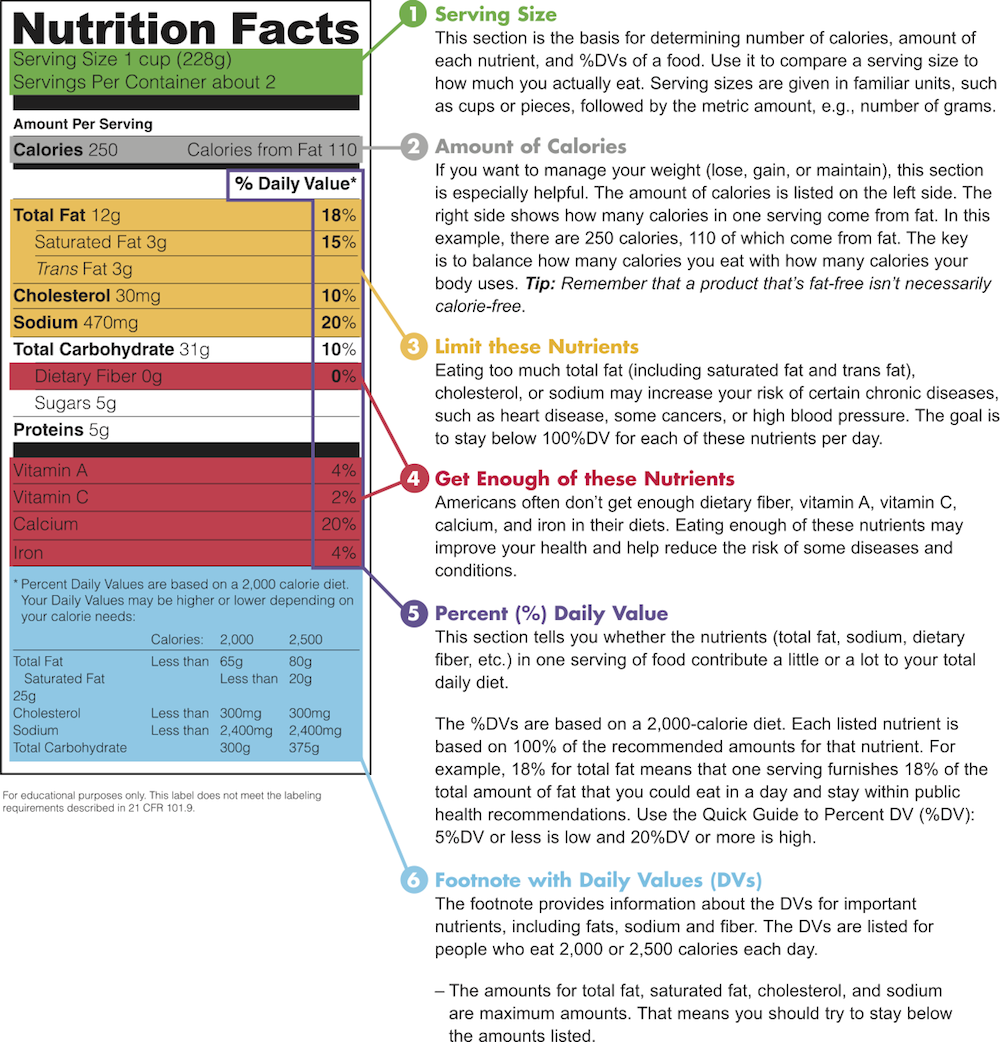
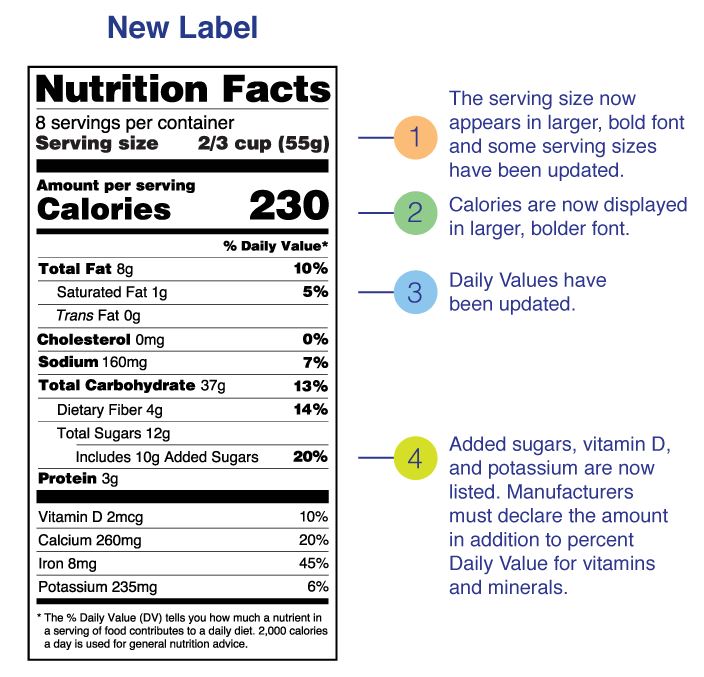


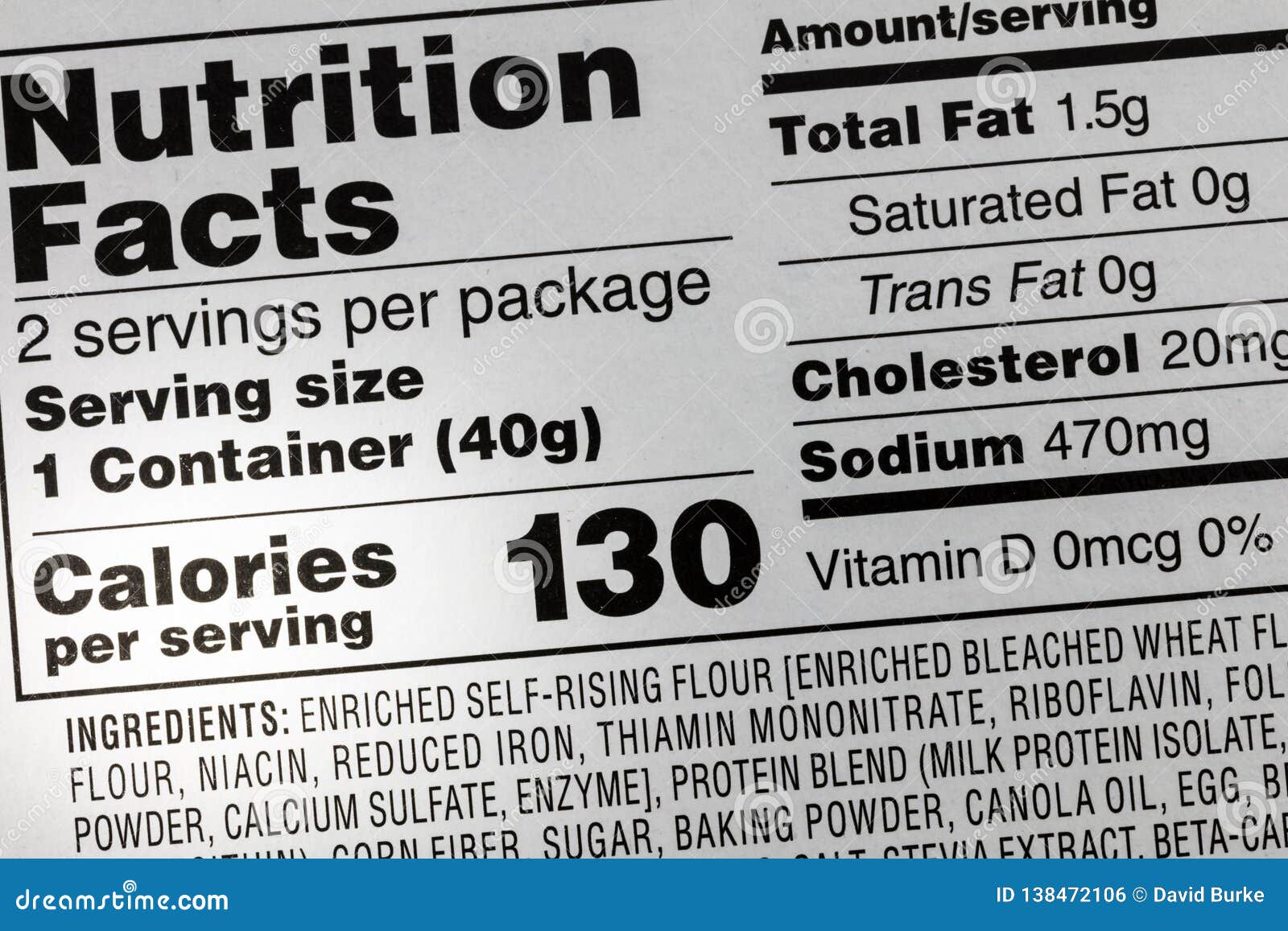

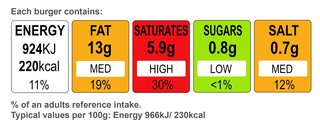
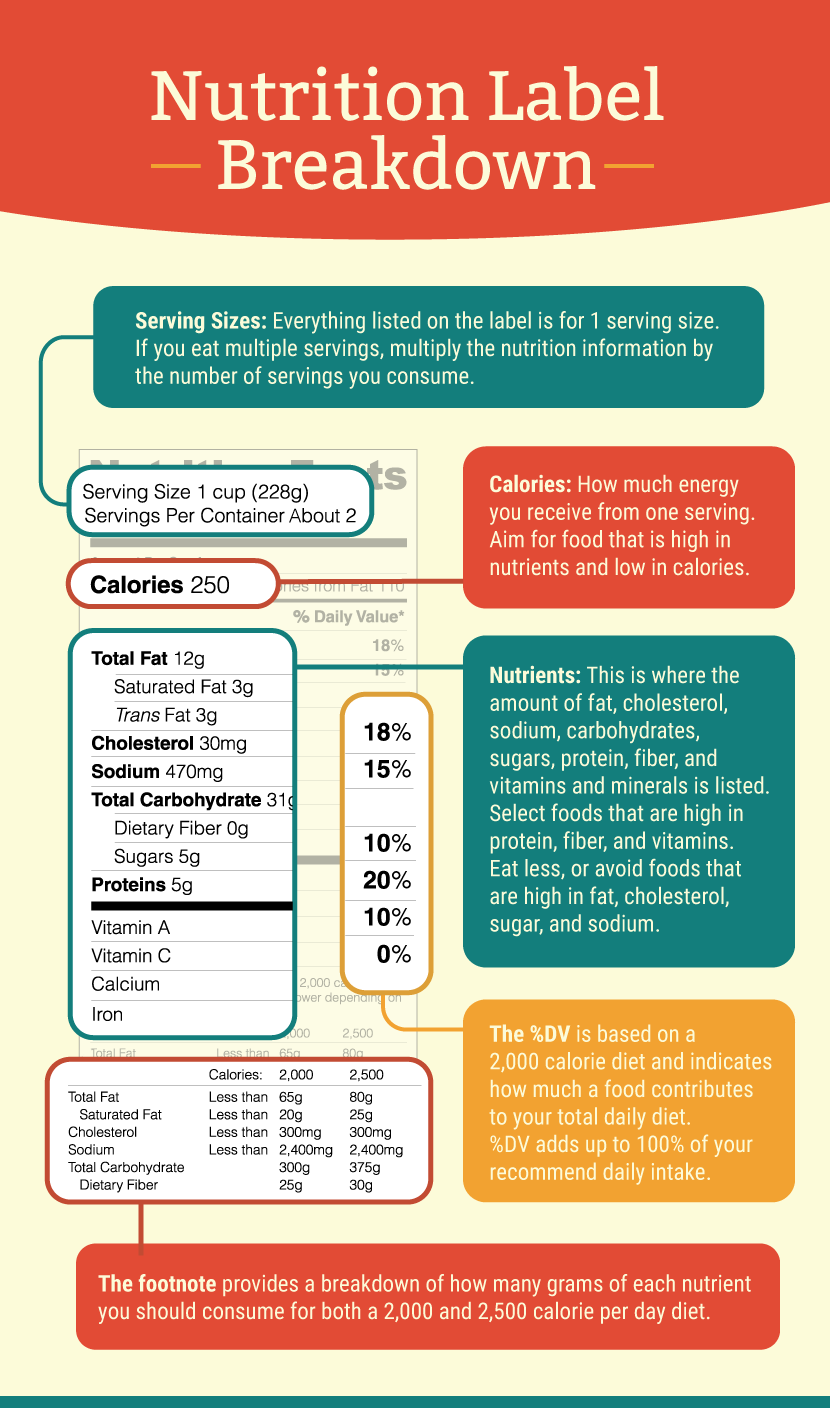


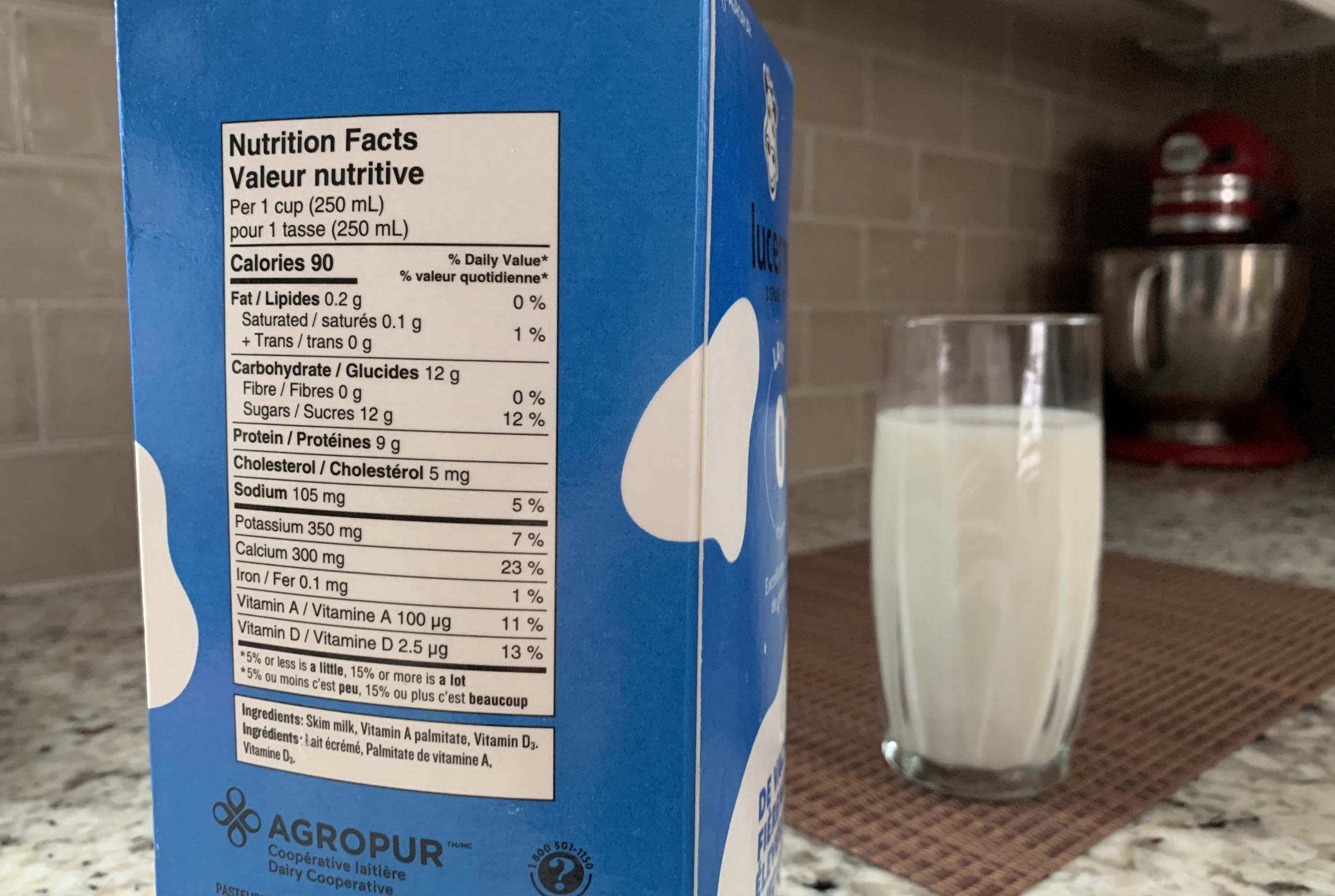

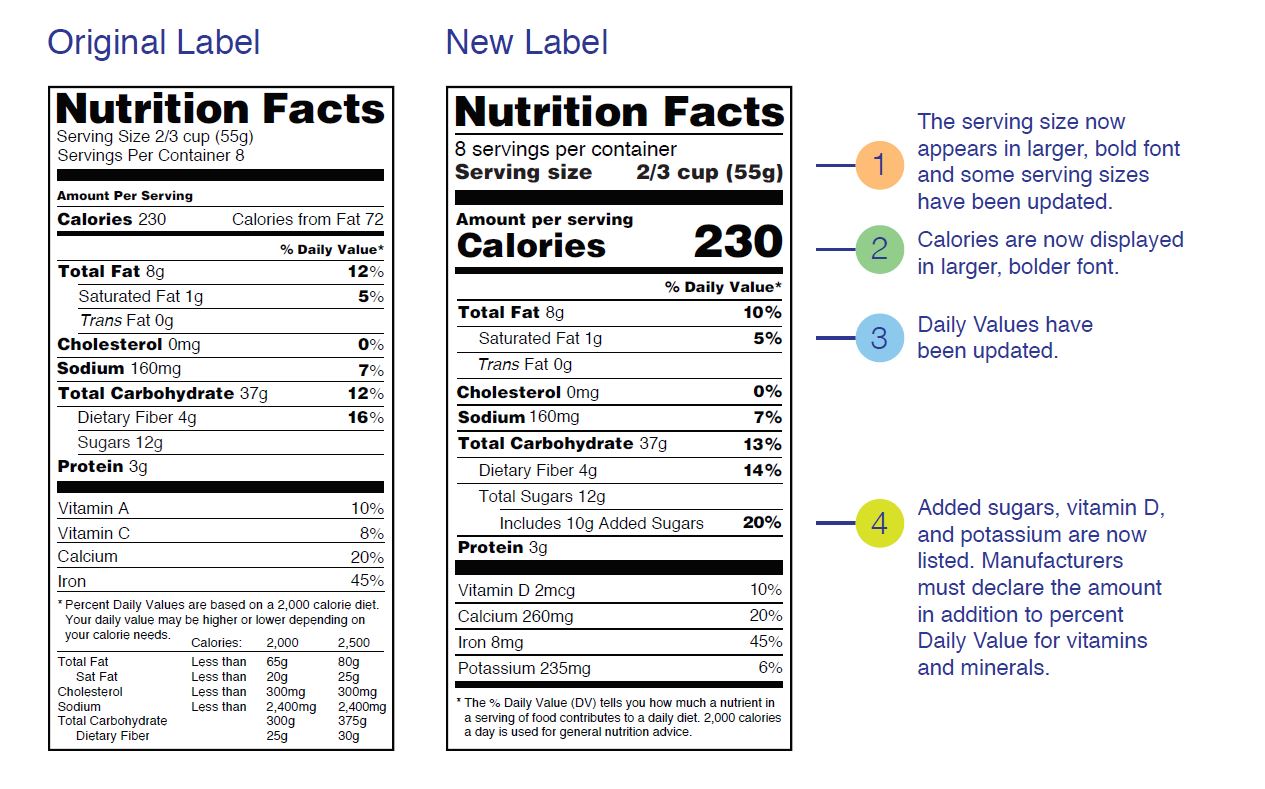

/Untitled-design-1--5755c3703df78c9b46903dab.jpg)


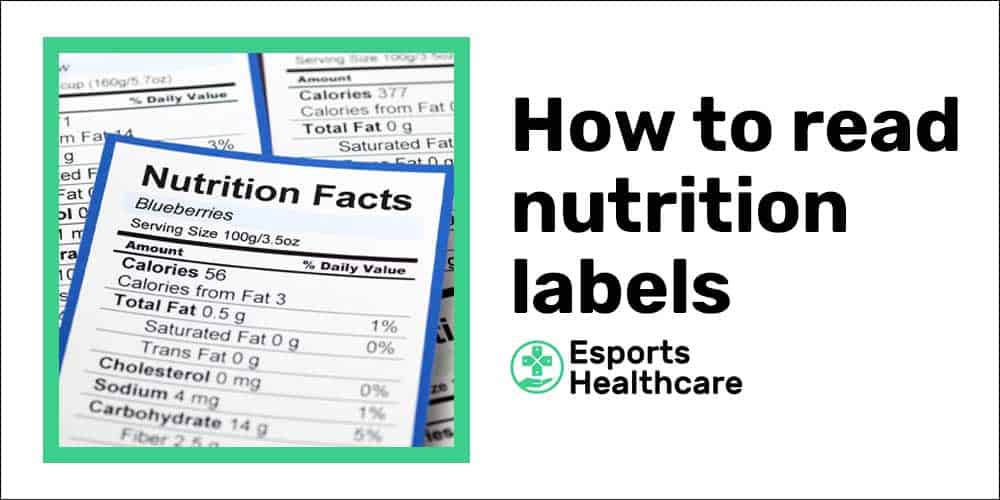

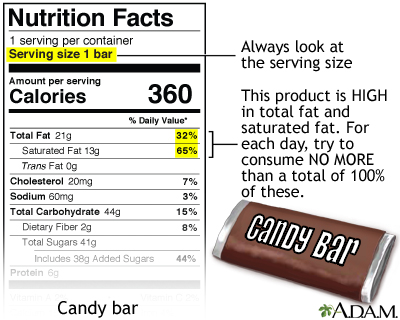
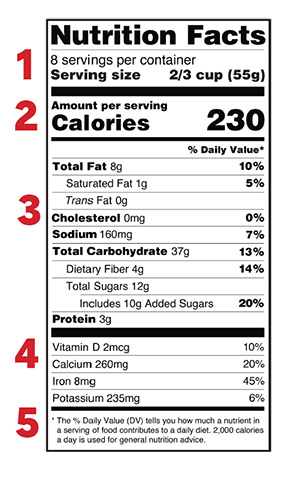
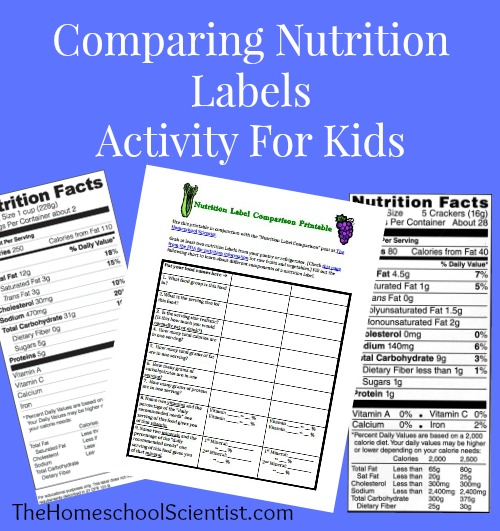

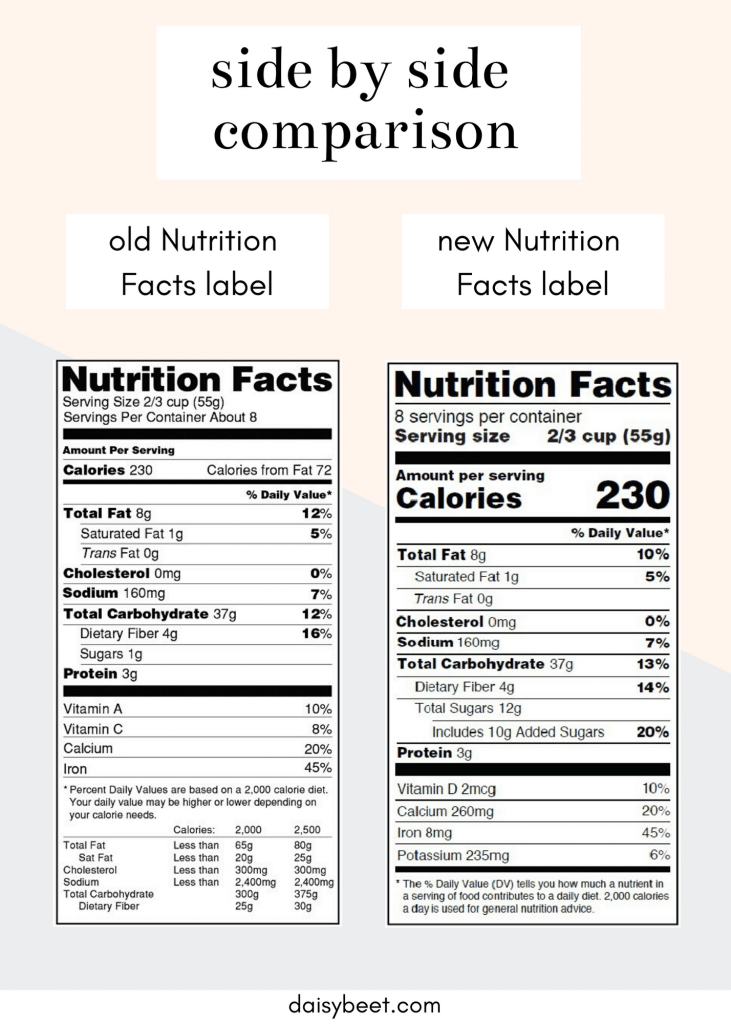


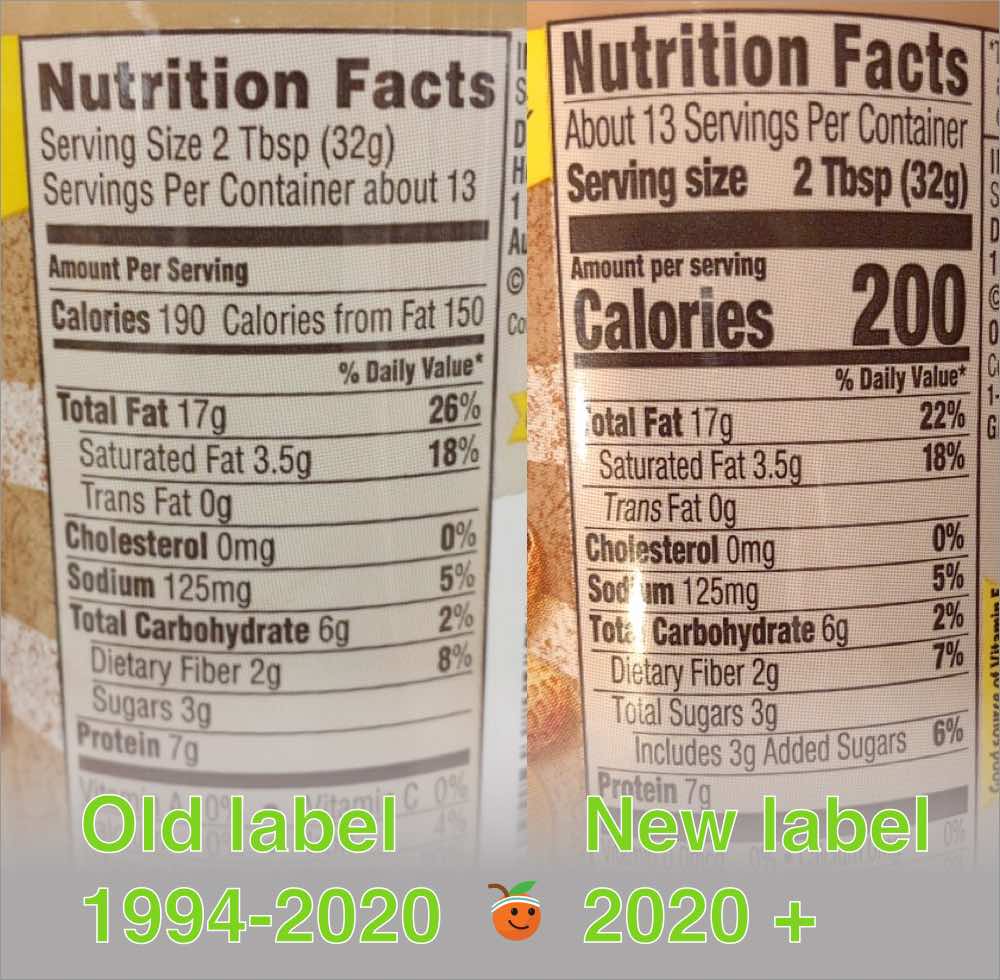
:max_bytes(150000):strip_icc()/Untitled-design-2--57535bc15f9b5892e8c65c9c.jpg)
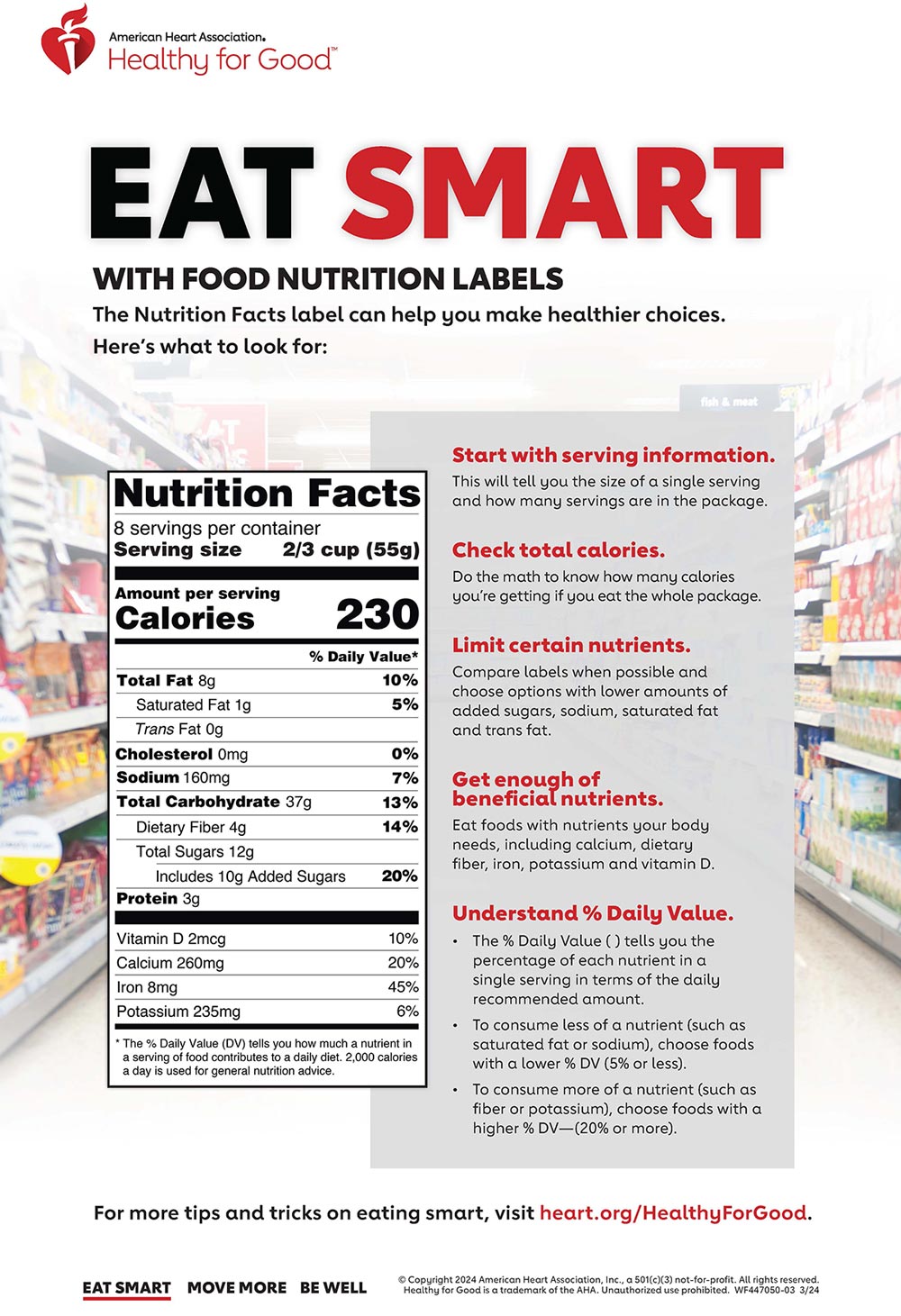
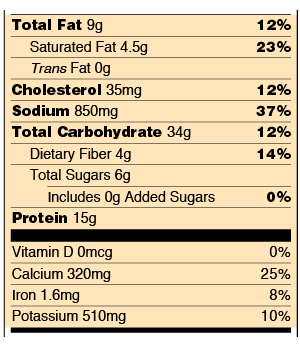
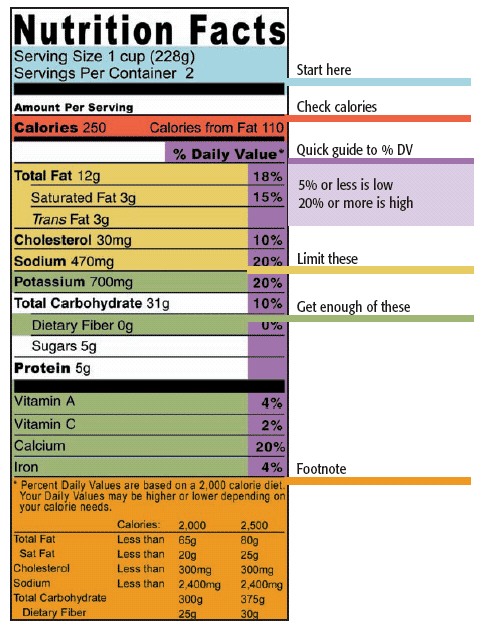
Post a Comment for "43 understanding fat on nutrition labels"